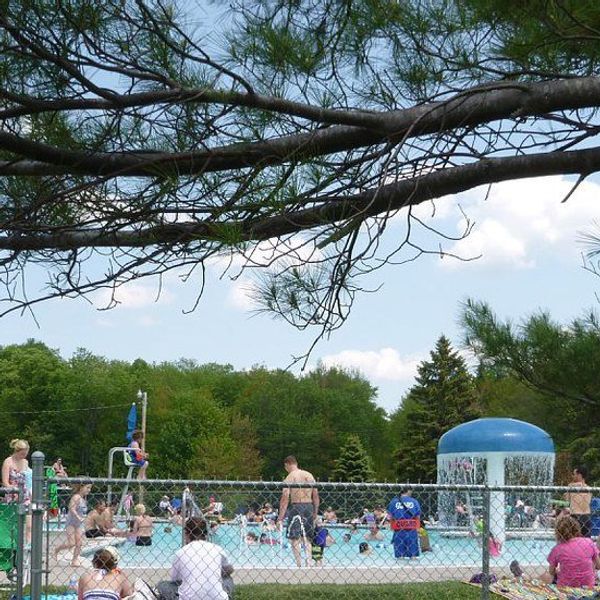From the second that I stepped off of the airplane at the José Martí International Airport in Havana, time itself seemed to slow down. First of all, I had the sobering realization that I would really have to survive the entire next week with absolutely no ability to contact anyone who was not in the same room as me. The idea of going without cell service is petrifying, but legitimately not being having the ability to text a friend or check social media made my entire first day in Cuba seem like a century. I was so used to being able to escape boredom by clicking a few buttons on my screen that I was tortured by the still moments that inherently come between the business of daily life. Additionally, I suffered the emotional rollercoaster of withdrawals from technology because of the isolation that comes with suddenly leaving the range of cellular service. I had been severed from a network that comforted me by providing constant access to my community.
Additionally, the pace at which everything around me happened was indescribably slower than anything I had previously experienced. In spite of the fact that only one other small flight landed around the time of ours, it took three hours to leave the airport. This combined with my lack of cell service made waiting for my bags and the customs line seem torturous. Nothing was organized or run according to schedule like I was used to, and since this lack of structure imprisoned me in the airport I resented it.
When I woke up the next morning and realized that I had survived my first terrifying day in this place that was so different from my reality, the panic that I had initially felt began to subside. The sense that everything around me was in disorder never faded, but I started to understand that disarray was just a part of the reality of Cuba. When I saw the piles of bricks surrounding the crumbling facades of majestic buildings, or the impromptu dance parties of women cha-cha-ing through the streets, or how difficult it was to find anything for breakfast other than a slice of salami on white bread, I simply attributed it to the disorder that I had experienced from the moment my plane landed. I assumed that this disarray was a product of the communist system that ensured that every citizen was paid no matter the quality of their work, so they could afford leisure. This was the general idea of communism that I had derived from what I learned in school. However, by the end of my trip I saw that this theory lacked any substance at all. The practice of communism is entirely different from the theory. The disorder that I saw was actually the manifestation of the chaos within the Cuban government and it colored the lives of everyone on the island. Therefore, the citizens of Cuba were actually struggling on a day to day basis simply to survive.
However, this quest for survival translates into the real treasure that I saw once I actually experienced Cuba. The decades old cars that the families cannot afford to replace turn average drivers into expert engineers with a level of skill that most mechanics only aspire to. Their cars have driven millions of miles and are well past their prime, but Cubans who own one are forced to fix its every problem because their income most likely relies on it. Regular families have to turn their homes into hostels or Paladares, which are family run restaurants, simply to avoid sleeping on the streets. This process is not simple, as buying food with the restrictions of the strict rations placed on citizens by the government, places strain on any restaurant owner. Even owning a hostel is a risky and difficult operation, because most owners still need another source of income to support their families. Therefore, house owners have become scrappy and savvy businesspeople because of the skill that it takes to actually keep one of these establishments running.
I was further astonished by the fact that other Cubans produce breathtaking pieces of art, as gaining the financial liberty to be an artist is tragically difficult for the average Cuban. There is a thriving art community in Havana that is unique and inspired because the artists transform their difficulty into magic.
This is what I find so beautiful about Cuba. That in spite of the impossible circumstances created by governmental disarray, everyone on the island turned their survival into an art form. The magic of this country lives on because these people who are intensely prideful of their country have turned their disgraceful circumstances into something that they can be proud of every day. Making life beautiful is the continual victory of the Cuban people, because every day that they overcome is a day that they beat the oppression of the government that does not function in their favor.
- World Leaders Fail To Condemn Tyrannical Dictator Fidel Castro ›
- 2016 Isn't All Bad ›
- I'm Proud to be Cuban ›
- Myths about Castro's Cuba ›
- My Cruise To Cuba ›
- 5 Things To Do When Visiting Cuba ›
- Changing My Perspective A Week Before I Leave For Cuba ›
- Cuba After Castro: Cuba's New President and Parliament ›
- Cuba Libre ›
- 10 Reasons to Visit Cuba and 5 Why You Shouldn't ›



















